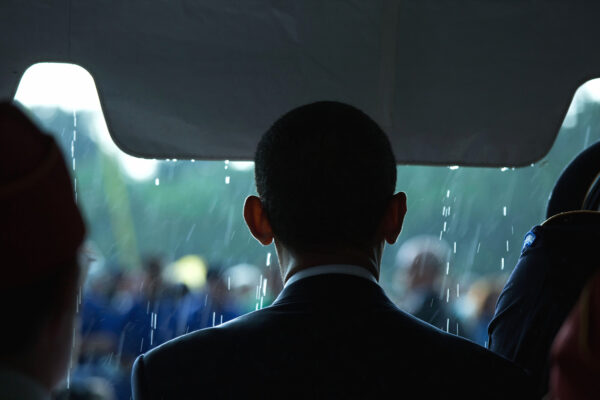
Jeb Bush, the former Florida governor who is a candidate to succeed Barack Obama in 2016, reiterated a familiar Republican lament on Tuesday when he suggested that the Democratic incumbent’s withdrawal from Iraq was to blame for the emergence of the self-declared Islamic State in the country.
This is an absurd accusation.
Bush — whose older brother, George W., invaded Iraq in 2003 — has recognized that the war was a mistake. Saddam Hussein did not have weapons of mass destruction nor did his regime support terrorist organizations, as the Republican administration at the time claimed.
Hussein’s fall, moreover, removed a Sunni obstacle to neighboring Shia Iran’s hegemonic ambitions in the Middle East — to the alarm of American allies in the region.
Yet on Tuesday, in a speech at the Ronald Reagan Presidential Library in California, Bush insisted that Obama had been wrong to withdraw forces from Iraq “prematurely”. He said the president and his secretary of state, Hillary Clinton — who is now seeking the presidency herself — “stood by” as America’s “hard-won victory” in Iraq was “thrown away” in “a blind haste to get out,” leaving a vacuum that the Islamic State eventually filled.
Bush’s interpretation of events is not entirely without merit. The Islamic State did fill a vacuum. But it was not a vacuum created by Obama.
It was the last President Bush who committed America to the Iraq withdrawal in 2008, shortly before he left office. Obama, who came to power in January 2009, simply carried through the Republican plan.
Obama was elected on a pledge to leave Iraq and he disappointed some on the antiwar left by keeping troops in the country until 2011. His administration also did make an effort to persuade the Iraqis to allow a remnant force to stay put — but the Iraqis refused.
If Republicans insist Obama didn’t try hard enough, they ignore the fact that it was up to the Iraqis, not the United States, to make the decision — just as their own party’s government had promised in 2008.
If they claim America was on the verge of victory in Iraq, they have a funny idea about what victory means.
Republicans like to believe the 2007 “surge” — which saw 20,000 more American troops deployed, mostly to Baghdad and the Sunni majority Anbar Province — turned the war around. But this is a right-wing fantasy. As Fred Kaplan, who wrote a book on America’s counterinsurgency efforts in Afghanistan and Iraq, argues at Slate, the surge was a tactical success but it did not pave the way for victory.
As its architect, General David Petraeus, said on several occasions, the surge was meant merely to create some “breathing space,” a “zone of security,” so that Iraq’s political factions could form a unified government. The problem was that Prime Minister Nouri al-Maliki didn’t want unity: He didn’t want to make a deal on power-sharing, oil revenues or land settlements with Sunni or Kurdish leaders; he wanted to maintain Shiite dominance.
More than anyone, it was the shortsighted and sectarian Maliki who created the conditions that allowed the Islamic State to emerge. It was his Shia-dominated administration that sidelined the Sunni population that had been in power under Hussein. He demoted or fired capable Sunni bureaucrats and military commanders in favor of his cronies and deepened ties with Iran rather than the Arab world, all the while ignoring warnings from other leaders in the region and the United States that Sunni resentment was mounting.
Ibrahim al-Marashi, an assistant professor at California State University, San Marcos, writes for Al Jazeera that the discrimination in employment opportunities was one of the leading grievances raised by Sunni protests in 2012 and 2013. When those demonstrations were violently suppressed by Maliki, it “paved the way for [Islamic State] to ride the wave of Arab Sunni discontent.”
The fanatical Islamist group (also known as ISIS) conquered Mosul, Iraq’s second city, in 2014 and now controls the majority Sunni areas of western Iraq, including the cities of Fallujah and Ramadi, as well as parts of northeastern Syria. Arab and Western allies have bombed the militants and their strongholds but so far failed to set them back decisively.
“Blaming the United States for the rise of ISIS or waiting for its airstrikes to destroy the group is a fool’s errand,” argues Joyce Karam at Al Arabiya who, like Marashi, points to internal and regional factors that played a bigger role: the civil war in Syria, Arab funding for Muslim extremist groups, radicalization throughout the region and bad governance in many countries.
Perhaps the Obama Administration could have done more to alleviate those factors but it certainly didn’t cause them.
